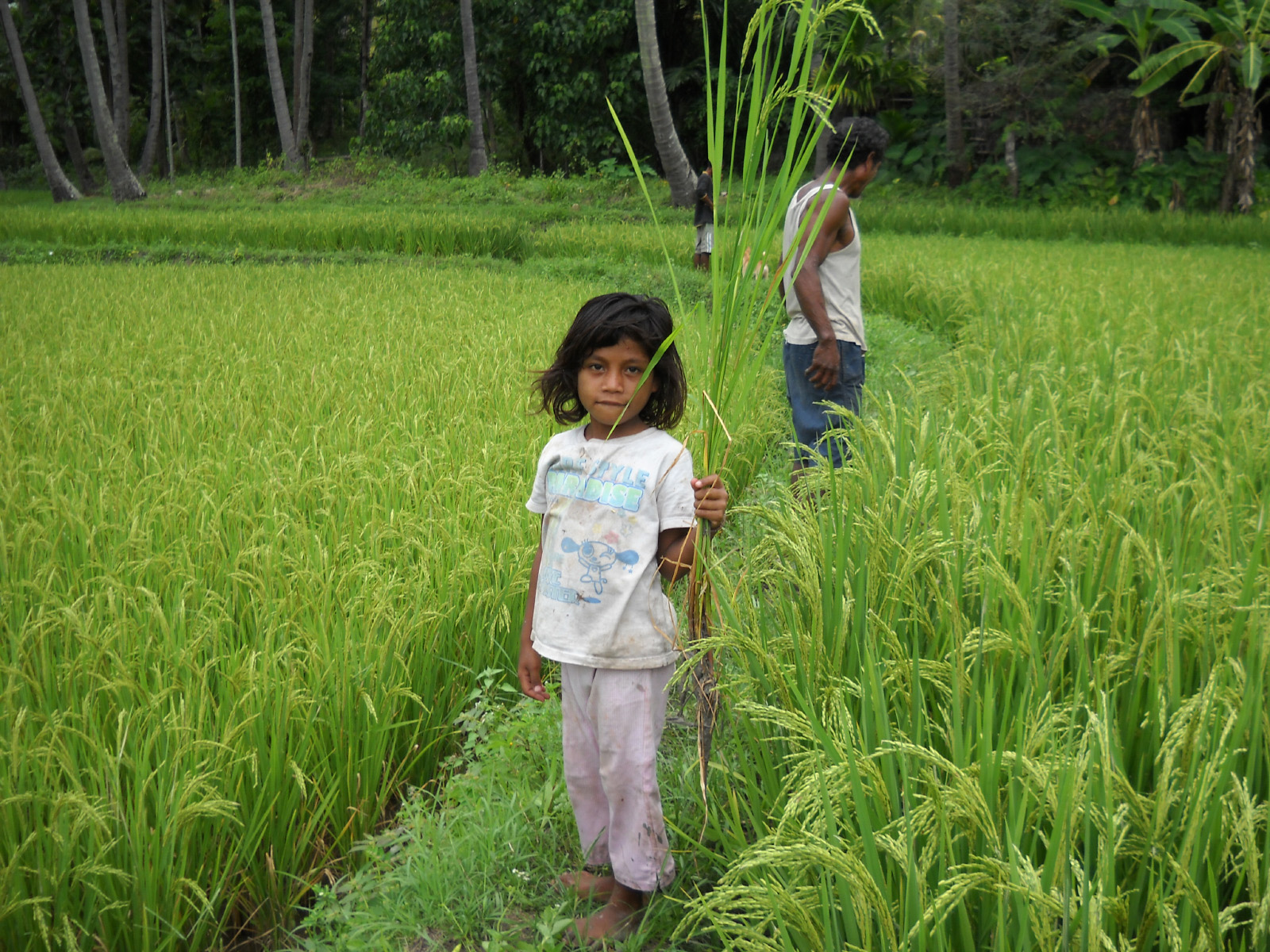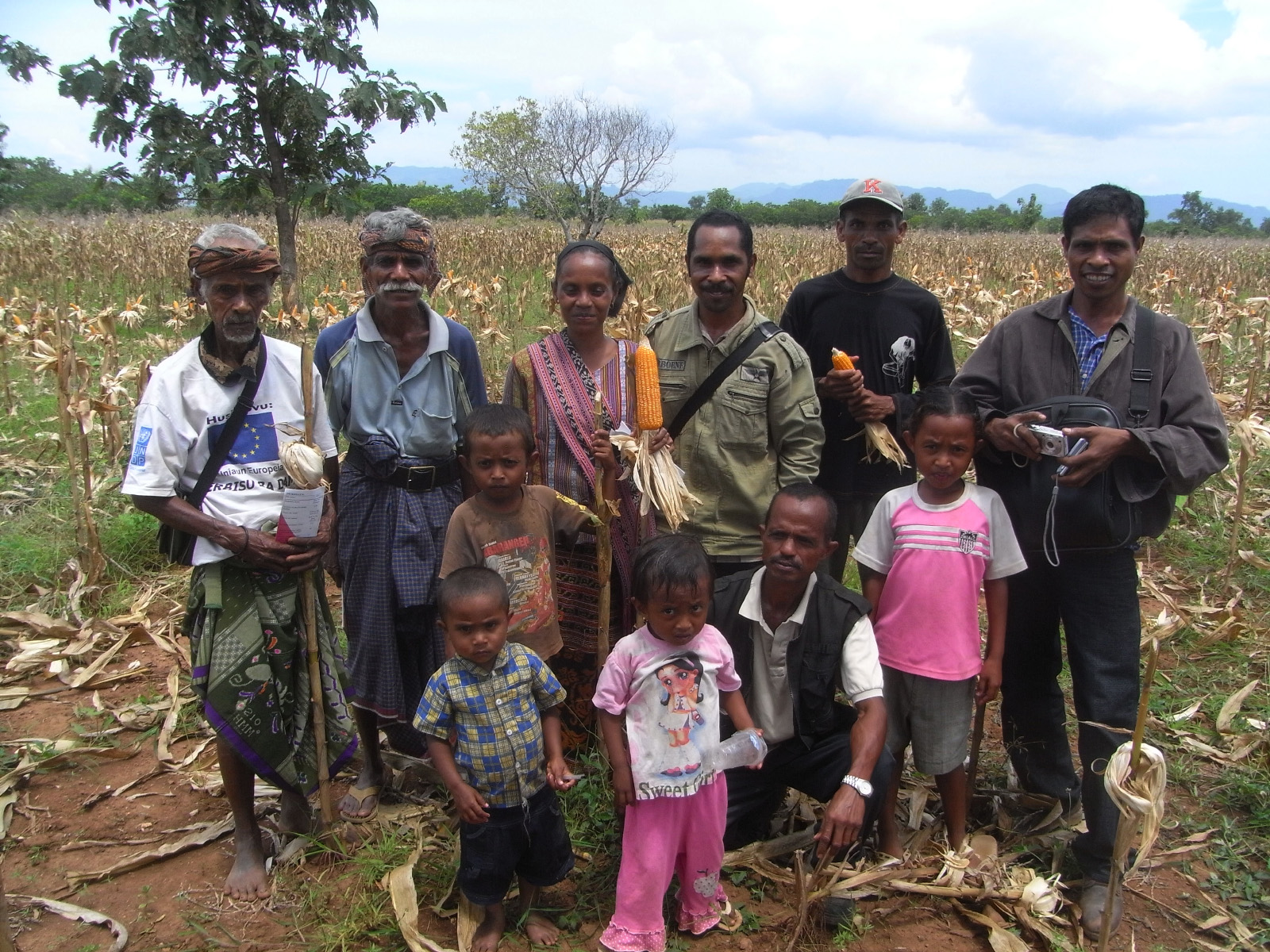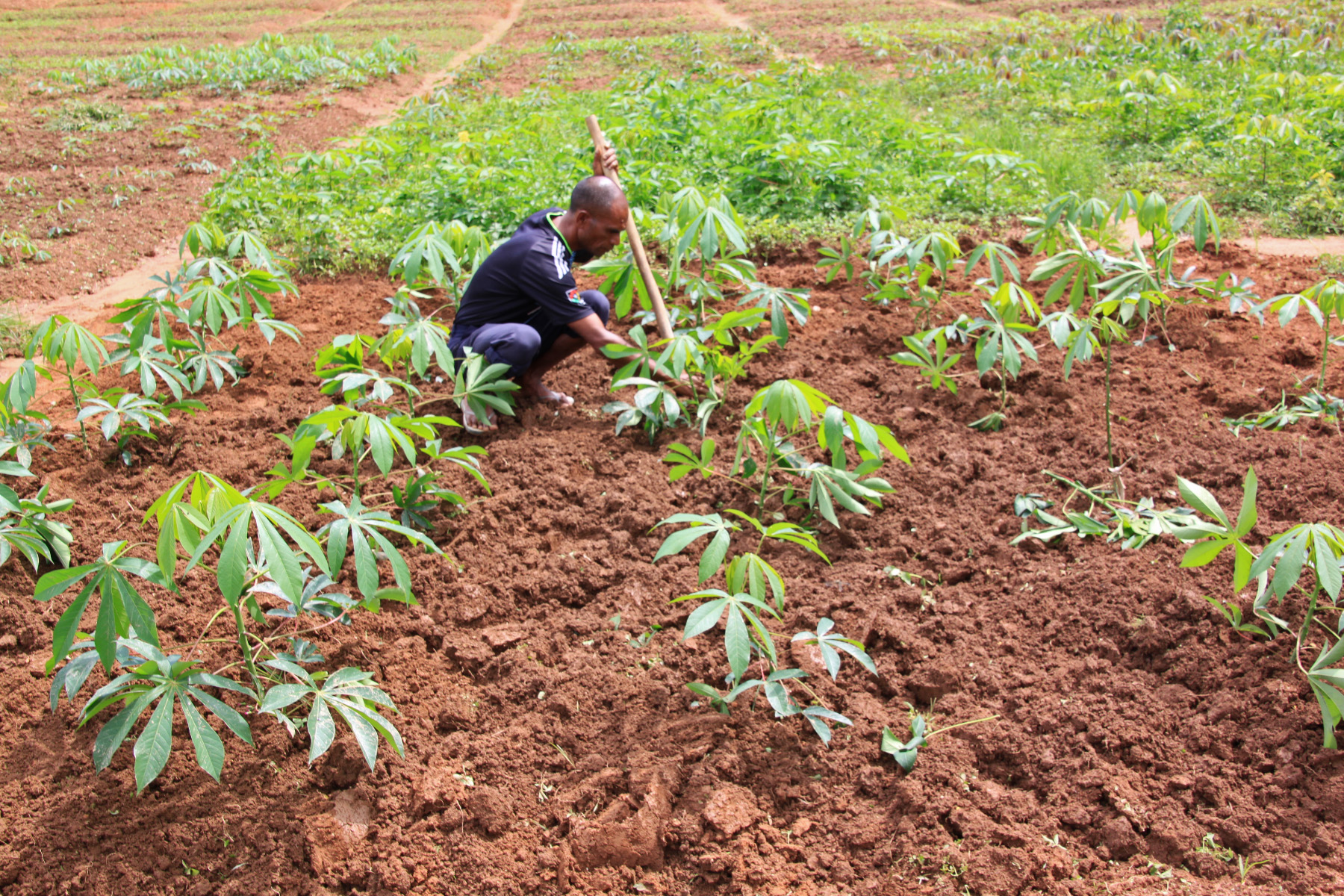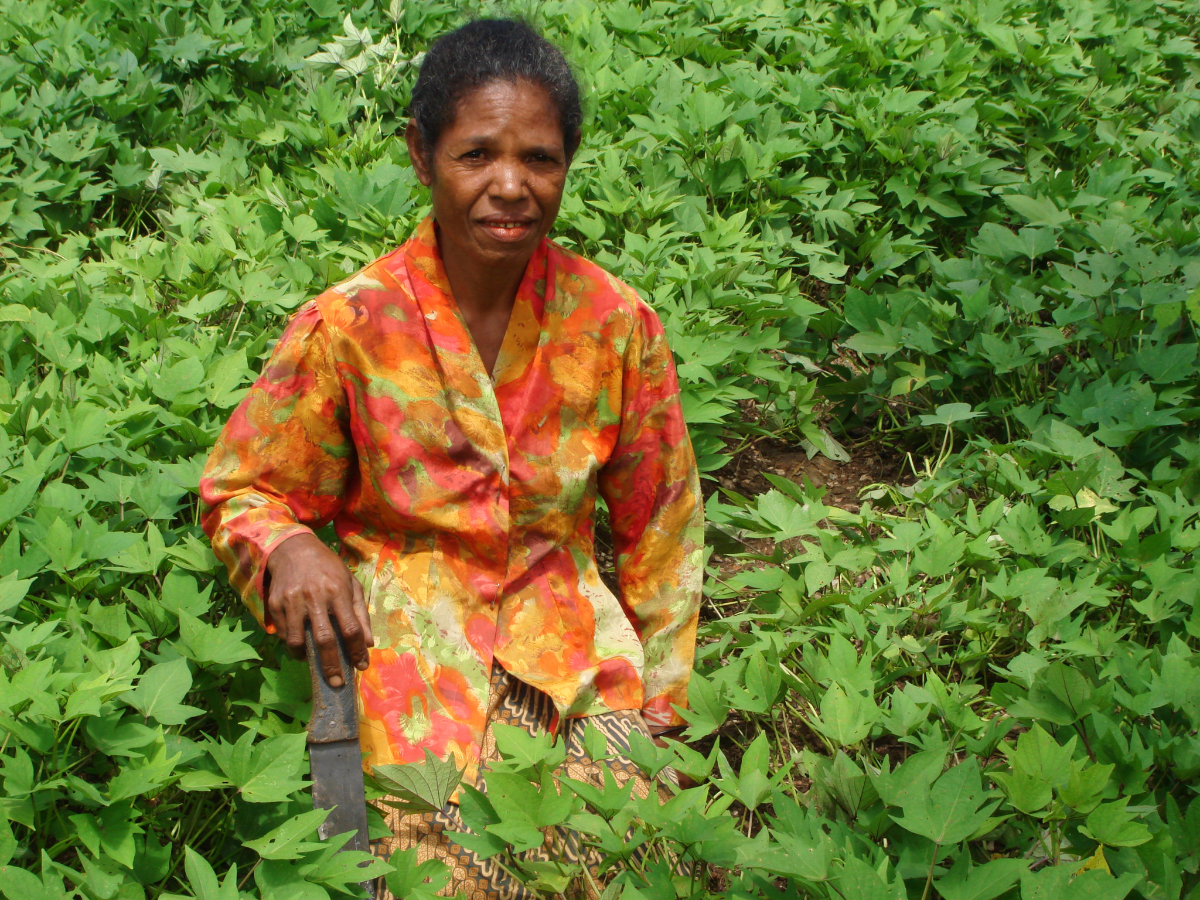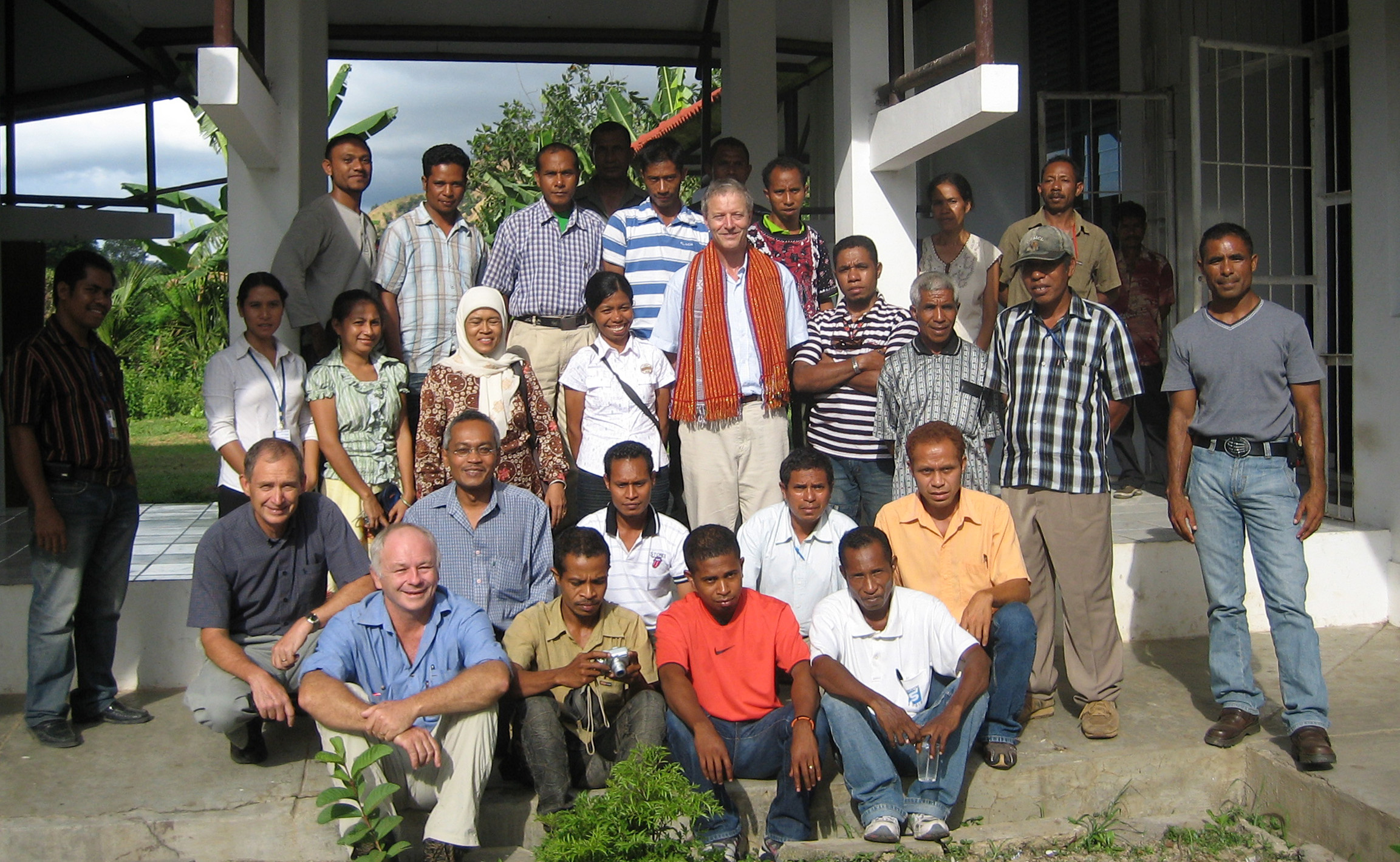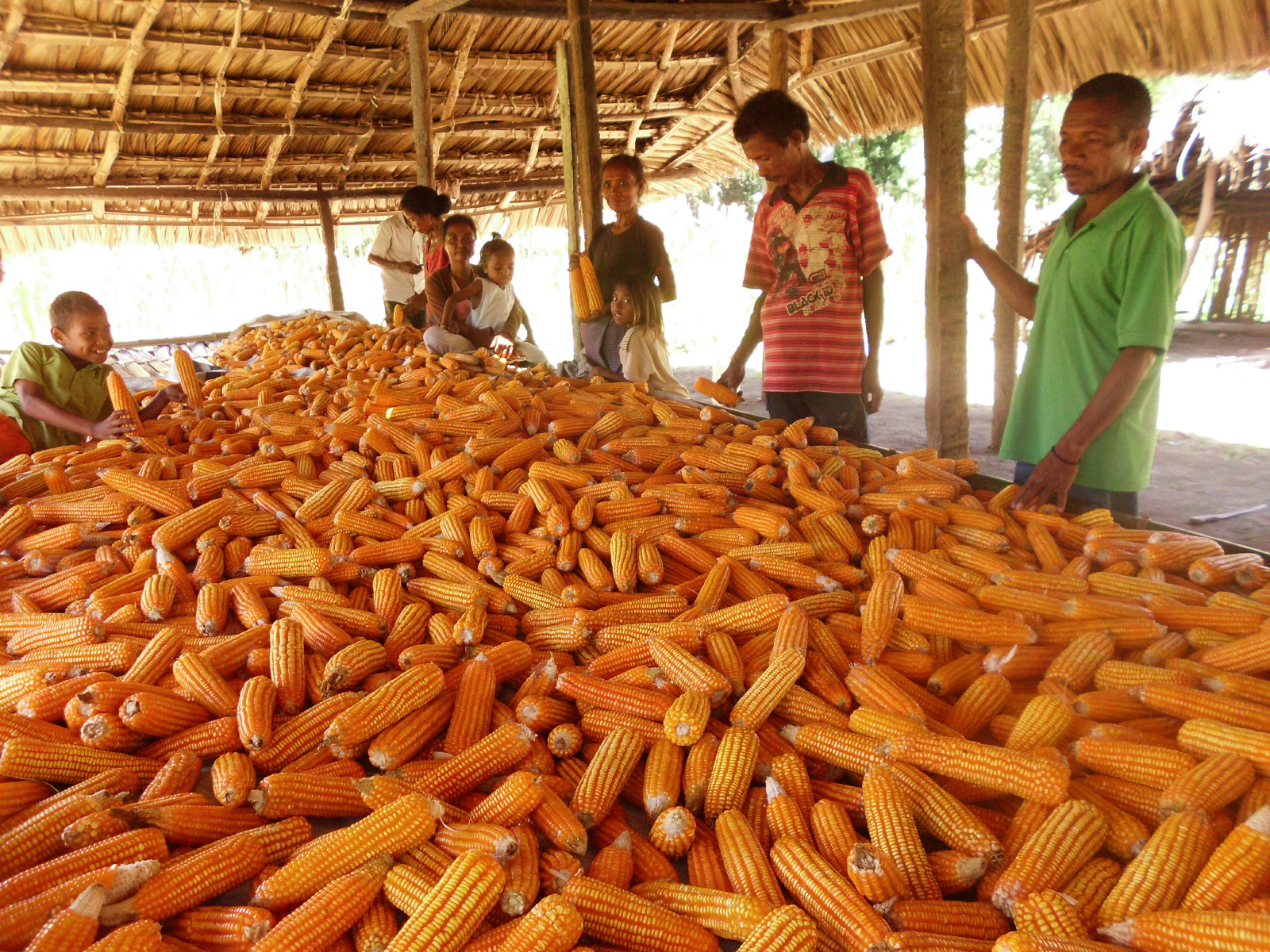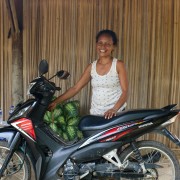Seeds of Life
 Congratulations to Yun Zhao, who won an iPad 2 mini in our Open Day competition just by answering: What research is important to you? for more information
Congratulations to Yun Zhao, who won an iPad 2 mini in our Open Day competition just by answering: What research is important to you? for more information
Challenge
Following years of conflict, Timor-Leste gained its independence in 2002; however this came at a cost. When the Indonesians left Timor-Leste the researchers left and the infrastructure was destroyed. Food security became a major problem for the country.
Of the 1.2 million East Timorese, 60% live below the poverty line with 80% involved in the agricultural industry. During the hungry season which spans 3 – 4 months per year, farmers and their families experience severe food shortages, poverty and chronic hunger, leading to malnutrition and stunted growth in children. Deficiencies in iron and Vitamin A (β carotene) are rated as alarming and massively behind acceptable levels with the country rating fourth on the Global Hunger Index 2015.
The Seeds of Life Program (SoL) was started in 2000 to help combat this situation. Managed by Professor William Erskine, Director of the Centre for Plant Genetics and Breeding (PGB) at UWA, this long-running project has now delivered and is changing lives in Timor-Leste.
Solution
An affordable and sustainable solution was needed which had to recognise local customs, gender roles, traditions and rituals around agricultural processes and that could be implemented in a timely fashion, when the rains come.
The main goals of the program:
- to reduce the hungry season and increase crop production
- to introduce and evaluate seeds with a wide range of genetic variation, for better health outcomes
- to develop the seed system to spread the new varieties nation-wide
In 2000, Ministry of Agriculture and Fisheries (MAF) and UWA researchers sourced non-genetically modified germplasm (seeds used for breeding) from neighbouring countries. These were planted, tested and tasted with varieties chosen on the basis of suitability to the climate and environment, yield output, taste and nutritional value as well as gender impacts. With women heavily involved in the process of storing and preparing food after harvest, their acceptance of new varieties was critical.
Crop varieties were selected and starting in 2006 they were distributed to more than 2200 trial farms. Farmers were requested to plant and tend the seeds as they would normally, with the crops monitored together by growers and researchers every two weeks.
Each new variety produced a significantly superior yield.
| Variety | Yield improved by: |
|---|---|
| Peanut | 47% |
| Cassava | 51 – 65% |
| Maize* | 46 – 50% |
| Rice | 24% |
| Sweet potato | 66-160% |
* Maize. An airtight, steel drum was introduced to deal with problem weevils and vermin. Sold at a small cost, it also delivered 1.5kg quality seed.
Existing social networks were then used to communicate SoL and distribute seeds to the wider population. Used as a coping mechanism during times of conflict, church groups, family and community groups already helped each other with planting; weeding and harvesting. It was quickly realised that the closer a farmer was to a seed holding family; the more likely he would also be to plant that same seed variety.
Over three years, 1200 groups from across Timor-Leste joined the program with 10% – 30% of rural households planting the new varieties. Some of the see production groups evolved into small businesses selling surplus seed, and/or providing loans to other families who needed help. For many, this was the first income they had ever had.
“It was clear that this program would have a major impact on the whole country.
William Erskine
To ensure that food security and crop productivity would continue long after the research team left, the National Seed System for Released Varieties (NSSRV) was set up under MAF. Since the project’s completion in June 2016, the NSSRV has released further bean varieties that contribute nitrogen to the soil and protein to the diet including mung beans, winged beans, and common beans, and also a new rice variety. In addition, UWA has welcomed agricultural students from Timor-Leste who have come to UWA to develop their research and return with renewed knowledge.
Key collaborators and supporters
- PGB, Faculty of Science, UWA
- Australian Centre for International Agricultural Research (ACIAR)
- Australian Department of Foreign Affairs and Trade (DFAT)
- Ministry of Agriculture and Fisheries (MAF)
- Government of Timor-Leste
Impact Pathway
The SoL program was delivered by June 2016 with more than half of rural households adopting improved seed varieties.
48% of all rural households in Timor-Leste now grow a new variety from the SoL Program, food production has been lifted, and now hungry seasons are shorter.
William Erskine
Better crop production and developments in agricultural processes have had a profound impact on the health and nutrition of the population of Timor-Leste. New yields of staple foods are more productive and provide families with the vitamins, proteins and nutrients essential to improving calorie intake and overall health. The hungry seasons are now shorter and the population healthier.
Women have also become more empowered with a 30 – 35% increased involvement in the process.
Independent seed groups are transforming into small shops, helping to lift families out of poverty and bring economic gains to the nation. The start of this seed industry also provides a basis for international trade and long term food security in the region.
Researchers worked closely with MAF to develop national public policies around food security as well as lift their own seed system and research capacity for longevity. This collaborative approach provides Australia with a more stable and secure northern border. Our researchers will also continue to help monitor crops in Timor-Leste and react to new disease strains, before they reach Australian farmers.
With hunger remaining a serious problem globally, it is a useful approach for nations also experiencing enduring periods of conflict. For Timor-Leste, the SoL program has delivered food security to a newly independent nation working towards peace and reconciliation.
Impact in Action
At a recent conference, an East Timorese woman named Francisca stood up to reference SoL. “I’ll tell you what it’s done for me. We bought a motorbike, my son goes to university, we now have a tin roof on our house, and my husband keeps quiet; but he is still part of the process as well”.
Yun wrote: “produce crops with higher yield and better quality”. We introduced her to Professor William Erskine who has been at the heart of solving the problem of food security in Timor-Leste.
Yun is also a researcher in the field and after meeting Professor Erskine was inspired to help whole communities fight hunger by producing crops with a higher yield as well as improved quality and nutritional value.
For more information:
- The Timor-Leste National Seed System for Released Varieties website
- Seeds of Life brochure
- Australian Centre for International Agricultural Research, Seeds of Life
- Global Hunger Index 2015
Research impact tags:

 Understanding and predicting ocean weather
Understanding and predicting ocean weather 

